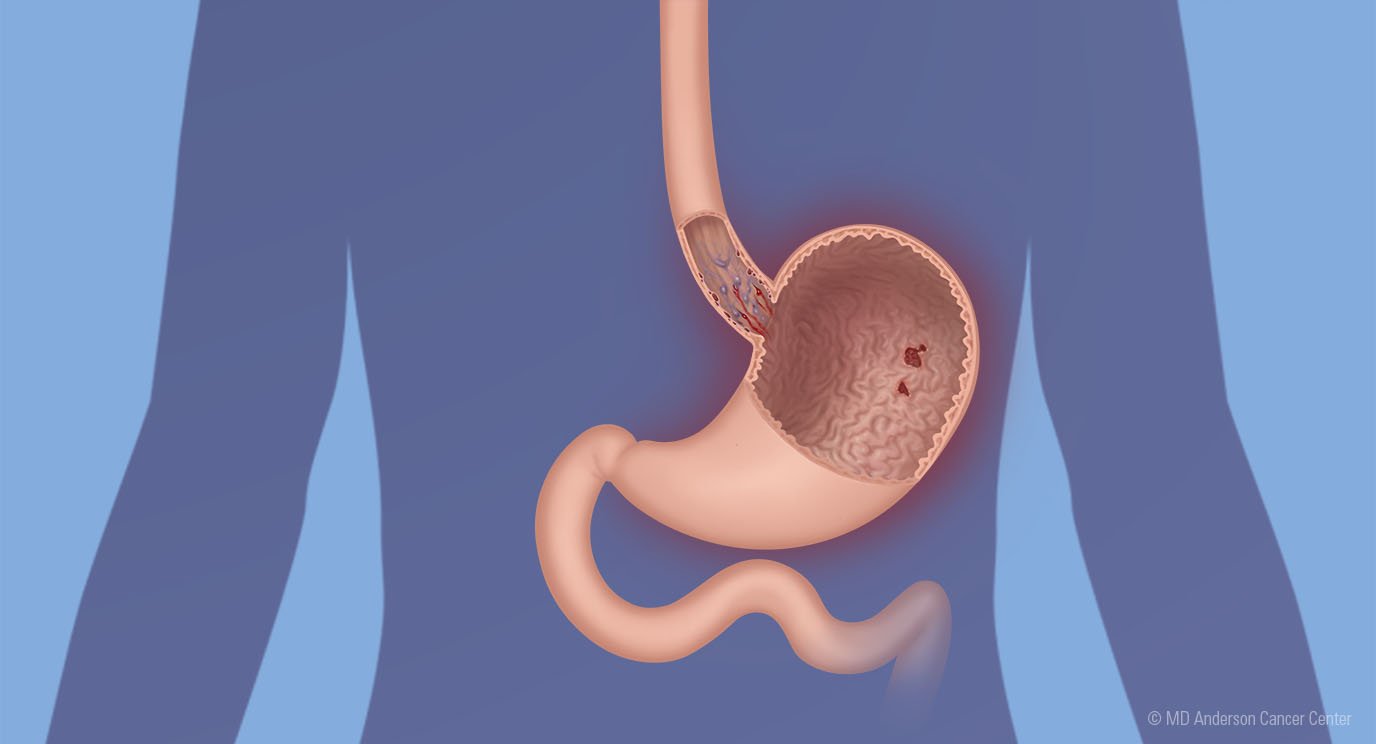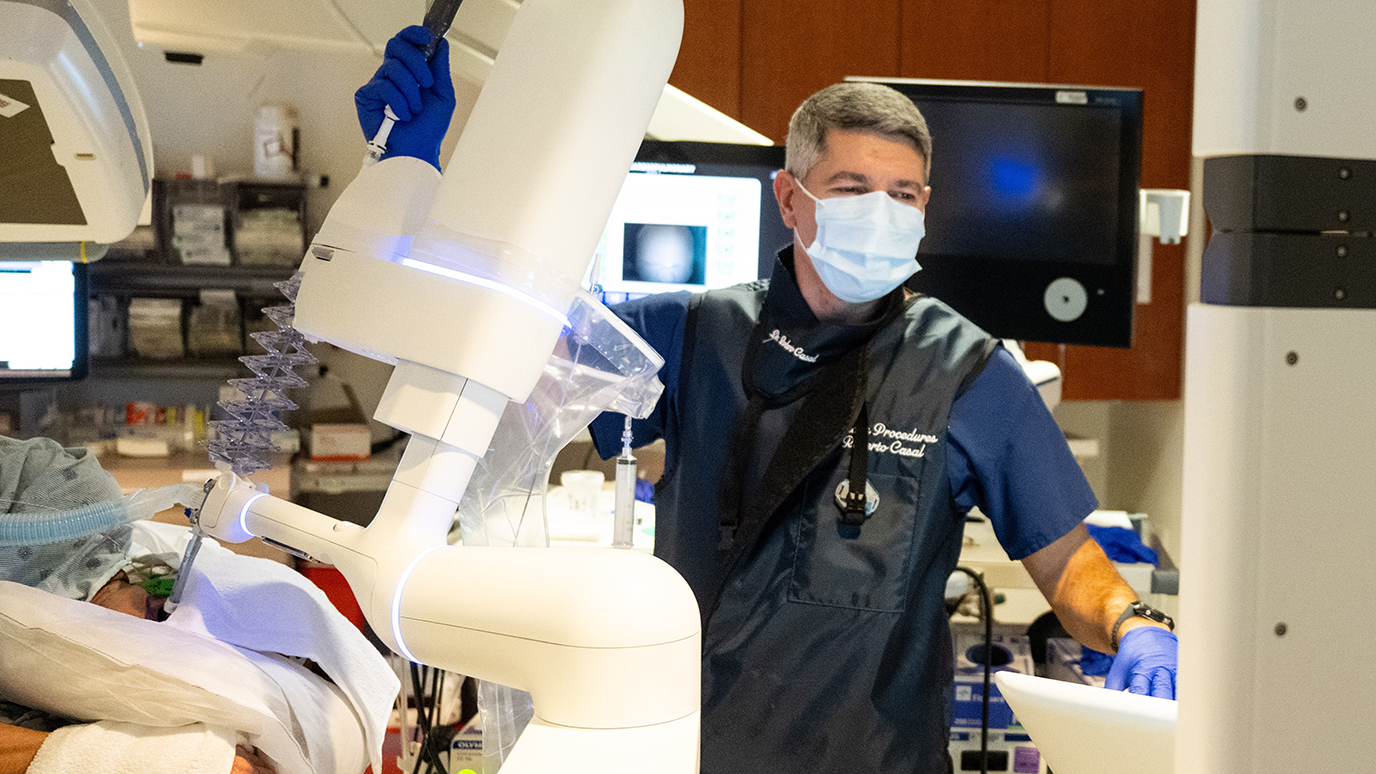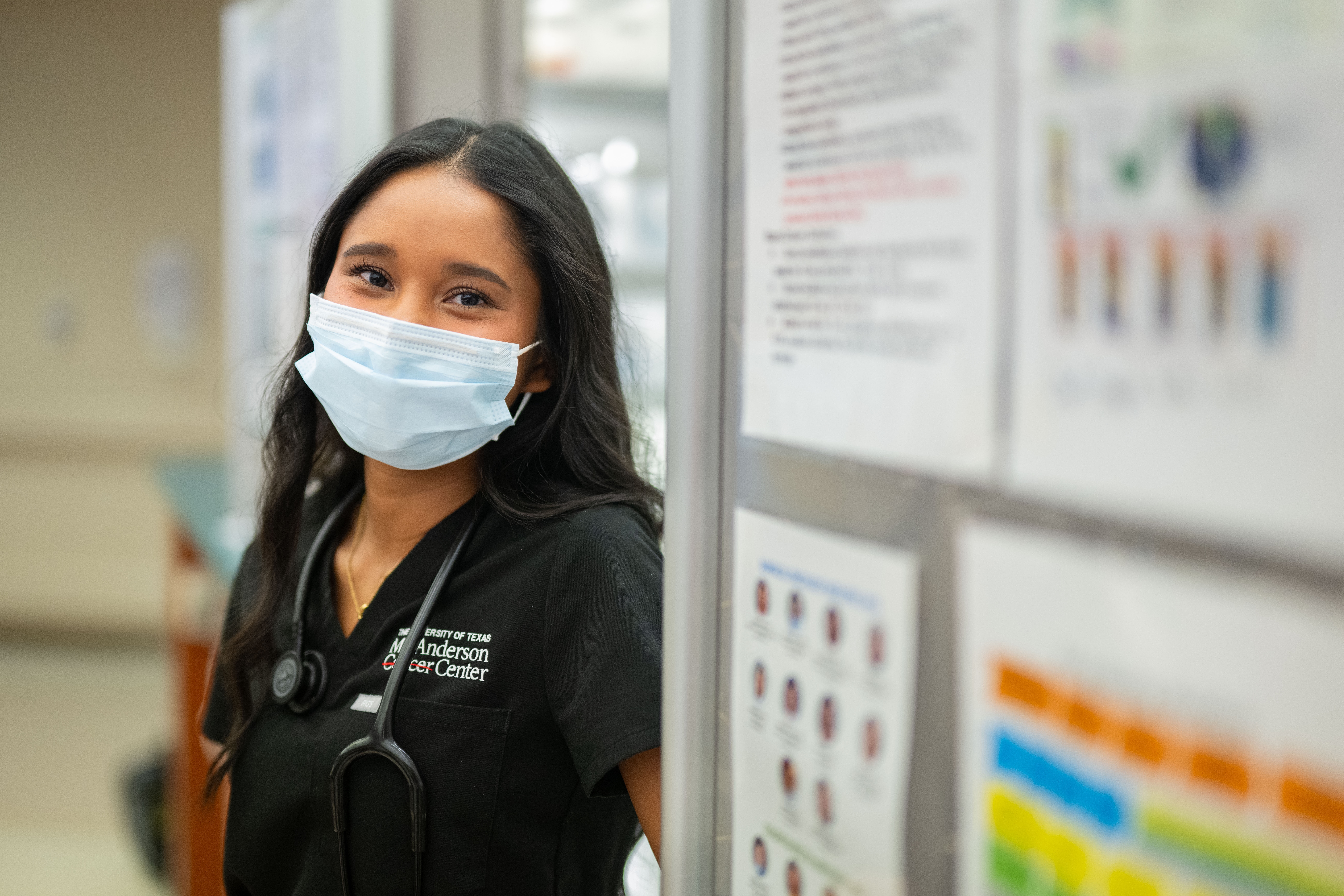Dogs boost employee wellness and morale
- Diseases
- Acoustic Neuroma (16)
- Adrenal Gland Tumor (24)
- Anal Cancer (70)
- Anemia (2)
- Appendix Cancer (18)
- Bile Duct Cancer (26)
- Bladder Cancer (74)
- Brain Metastases (28)
- Brain Tumor (234)
- Breast Cancer (728)
- Breast Implant-Associated Anaplastic Large Cell Lymphoma (2)
- Cancer of Unknown Primary (4)
- Carcinoid Tumor (8)
- Cervical Cancer (164)
- Colon Cancer (168)
- Colorectal Cancer (118)
- Endocrine Tumor (4)
- Esophageal Cancer (44)
- Eye Cancer (36)
- Fallopian Tube Cancer (8)
- Germ Cell Tumor (4)
- Gestational Trophoblastic Disease (2)
- Head and Neck Cancer (14)
- Kidney Cancer (130)
- Leukemia (342)
- Liver Cancer (50)
- Lung Cancer (286)
- Lymphoma (278)
- Mesothelioma (14)
- Metastasis (30)
- Multiple Myeloma (100)
- Myelodysplastic Syndrome (60)
- Myeloproliferative Neoplasm (6)
- Neuroendocrine Tumors (16)
- Oral Cancer (102)
- Ovarian Cancer (178)
- Pancreatic Cancer (162)
- Parathyroid Disease (2)
- Penile Cancer (14)
- Pituitary Tumor (6)
- Prostate Cancer (150)
- Rectal Cancer (58)
- Renal Medullary Carcinoma (6)
- Salivary Gland Cancer (14)
- Sarcoma (238)
- Skin Cancer (302)
- Skull Base Tumors (56)
- Spinal Tumor (12)
- Stomach Cancer (66)
- Testicular Cancer (28)
- Throat Cancer (92)
- Thymoma (6)
- Thyroid Cancer (100)
- Tonsil Cancer (30)
- Uterine Cancer (86)
- Vaginal Cancer (18)
- Vulvar Cancer (22)
- Cancer Topic
- Adolescent and Young Adult Cancer Issues (22)
- Advance Care Planning (12)
- Biostatistics (2)
- Blood Donation (18)
- Bone Health (8)
- COVID-19 (360)
- Cancer Recurrence (120)
- Childhood Cancer Issues (120)
- Clinical Trials (628)
- Complementary Integrative Medicine (22)
- Cytogenetics (2)
- DNA Methylation (4)
- Diagnosis (240)
- Epigenetics (6)
- Fertility (62)
- Follow-up Guidelines (2)
- Health Disparities (14)
- Hereditary Cancer Syndromes (128)
- Immunology (18)
- Li-Fraumeni Syndrome (8)
- Mental Health (122)
- Molecular Diagnostics (8)
- Pain Management (62)
- Palliative Care (8)
- Pathology (10)
- Physical Therapy (18)
- Pregnancy (18)
- Prevention (940)
- Research (390)
- Second Opinion (78)
- Sexuality (16)
- Side Effects (616)
- Sleep Disorders (10)
- Stem Cell Transplantation Cellular Therapy (216)
- Support (408)
- Survivorship (330)
- Symptoms (182)
- Treatment (1794)
Dogs boost employee wellness and morale
3 minute read | Published February 12, 2025
Medically Reviewed | Last reviewed by an MD Anderson Cancer Center medical professional on February 12, 2025
It all started with a question: “Why not?”
The question, posed to employees by Human Resources leaders, got Adam Siegman thinking.
“They said if you were told ‘no’ in the past, ask, ‘Why not?’ going forward. And I really took that to heart,” recalls Siegman, site lead for Workforce Wellness at MD Anderson.
A self-proclaimed people person with a passion for helping others, Siegman thought back to a health class he’d taken in college at The University of Texas, where he learned about the effect animals can have on human health. That, along with his love of dogs, gave him the idea for the BeWell Paws Program, which is a partnership with local pet therapy teams that brings therapy dogs to MD Anderson each month.
“Working in a cancer center can be stressful, and our employees juggle a lot on a day-to-day basis. So, I knew bringing in dogs could help our employees disconnect from work for a short period while also really boosting their mental and emotional well-being,” Siegman says.
A pawsitively popular program
He collaborated with MD Anderson’s legal and infection control teams, created a proposal and got it approved. He partnered first with Faithful Paws, a pet therapy group, and officially launched BeWell Paws in August 2023.
Since then, Siegman has seen more than 2,400 employees participate in 18 sessions.
From the beginning, Siegman wanted to be able to show how the program impacted employees and improved their workday. When employees arrive, they scan a QR code to take a survey asking how they are feeling. They take another survey after spending time with the dogs. The results have been overwhelmingly positive: self-reported data showed a 68% increase in mood over the first 14 sessions of FY24.
“It's so rewarding to see how some people can come in feeling upset and leave completely feeling a different way,” Siegman says.
Creating belonging for employees
The program has grown in popularity and expanded to MD Anderson’s campuses in The Woodlands, Sugar Land and West Houston. BeWell Paws has also visited researchers on MD Anderson’s South Campus, and Siegman hopes to continue to grow the program and help more employees.
“We can't expect our employees to give that exceptional care that MD Anderson is known for around the world if they're not doing well themselves, and that's where I thought we could help,” he says.
BeWell Paws has helped employees connect and bring their best selves to work, Siegman says.
“It's not just emotional well-being; it's also a sense of belonging, connection to MD Anderson, connection to your team. There are a lot of different wellness points the program hits, and that's why I think it's very popular,” he adds. “Whatever you're looking for, whether it's social connection, whether you are feeling down and you need a pick me up, it’s very versatile.”

It's so rewarding to see how some people can come in feeling upset and leave completely feeling a different way.
Adam Siegman
Workforce Wellness






